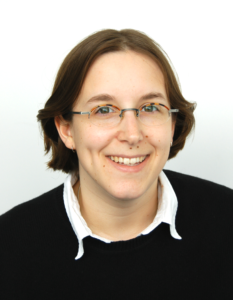Teil des Programms der “Mensch und Computer″ sind drei eingeladene Vorträge (Keynotes), in denen bekannte oder interessante Persönlichkeiten ihre Arbeit und Erkenntnisse präsentieren. Damit stimmen sie auf die Kernthemen der Konferenz ein und bieten Grundlage für weitergehende Diskussionen. In diesem Jahr werden die folgenden spannenden Vorträge stattfinden:
Opening Keynote
When Visualization Meets HCI
Visualization fundamentally studies how people work with, react to, understand, or interact with (mostly) digital representations of data. With its focus on people, Visualization challenges have always related to those discussed in HCI. Recently, however, many fruitful avenues for cross-disciplinary work have emerged more clearly: interactions with data through touch, pen, speech, olfaction, on very large or very small displays, using physicalization, proxemics, or tangibles, among others. In my talk I will examine this close connection of research interests that overlap both the HCI and Visualization community. I will focus on opportunities for visualization-related applications in HCI for non-desktop devices, immersive analytics, embedded and situated visualization, and will point to opportunities for joint work on design and evaluation methodologies.
Speaker Biography
UPA Keynote
The Accidental (Design) Leader
Andy first came to prominence in our industry as a designer and web standards enthusiast. He was driven by a desire to improve and professionalise the industry, which is how he came to start the UK’s first user experience consultancy, Clearleft. He never set out to be a design leader, but now find himself leading a team of thirty people, almost by accident.
In a quest to understand what makes a great leader, and help his friends in newly minted leadership positions, Andy started the Leading Design conference and Slack community last year. Over the past 18 months, Andy has interviewed dozens of prominent leaders and listened in on hundreds of Slack conversations about the art and craft of leadership.
In this session, Andy recounts his journey into leadership, shares his successes and failures, and the important lessons he’s learned on the way. The result is a talk packed full of design leadership heuristics suitable for anybody who is a leader, wants to be a leader, or has a leader.
Speaker Biography
Closing Keynote
The Loot Box of Gameful User Experience
Abstract: In information technology, creating user experiences (UX) with deep impact that can change people’s lives is a challenge to any interaction designer. The insights gathered from designing games provide software developers and UX designers with knowledge about engagement techniques and human preferences that can nudge people’s behaviour. On the long road to self-improvement, using gameful design, can provide the key for behaviour change and enhance persuasive technology. But why is it so difficult to design effective gameful user experiences? What are the challenges user-centred designers are facing? How do we run UX research remotely to gather insights about engagement with our products, systems, and services? This talks dives deep into Dr. Nacke’s experience of designing and researching games for over a decade to provide takeaways for anyone interested in a more personalized approach to gameful systems design.



